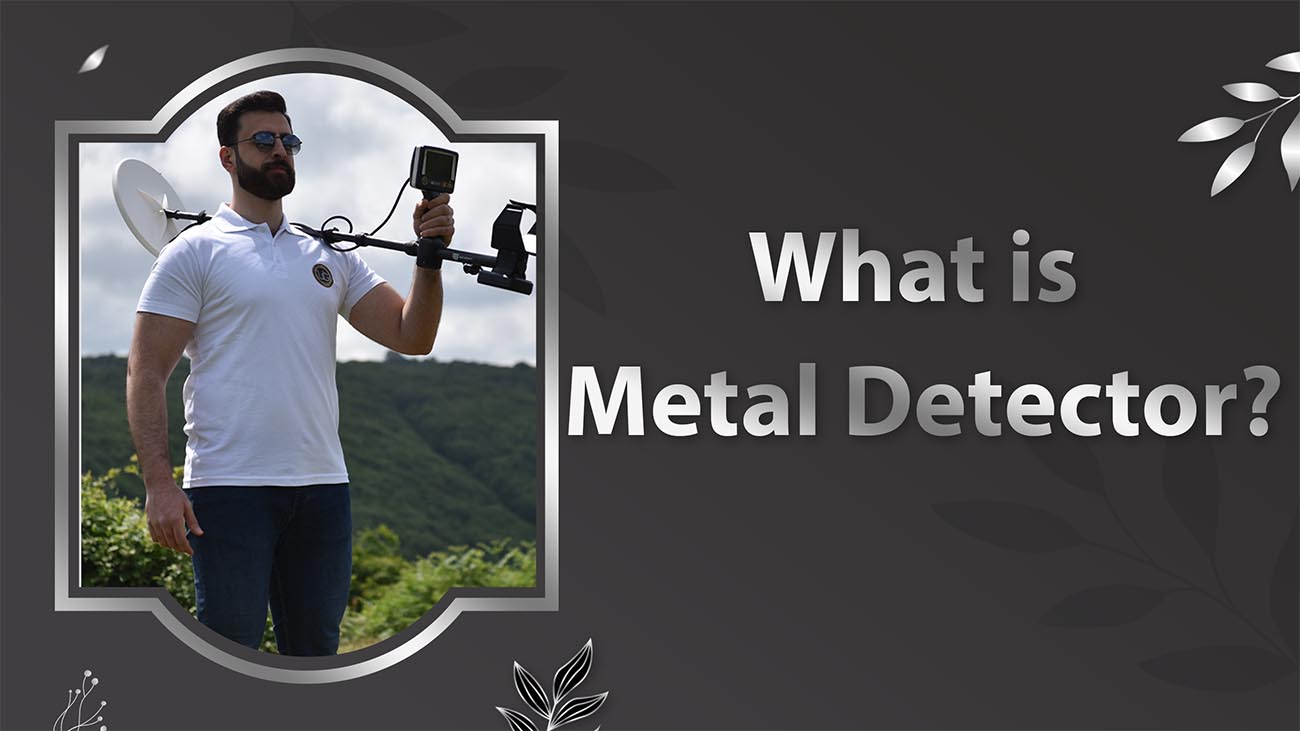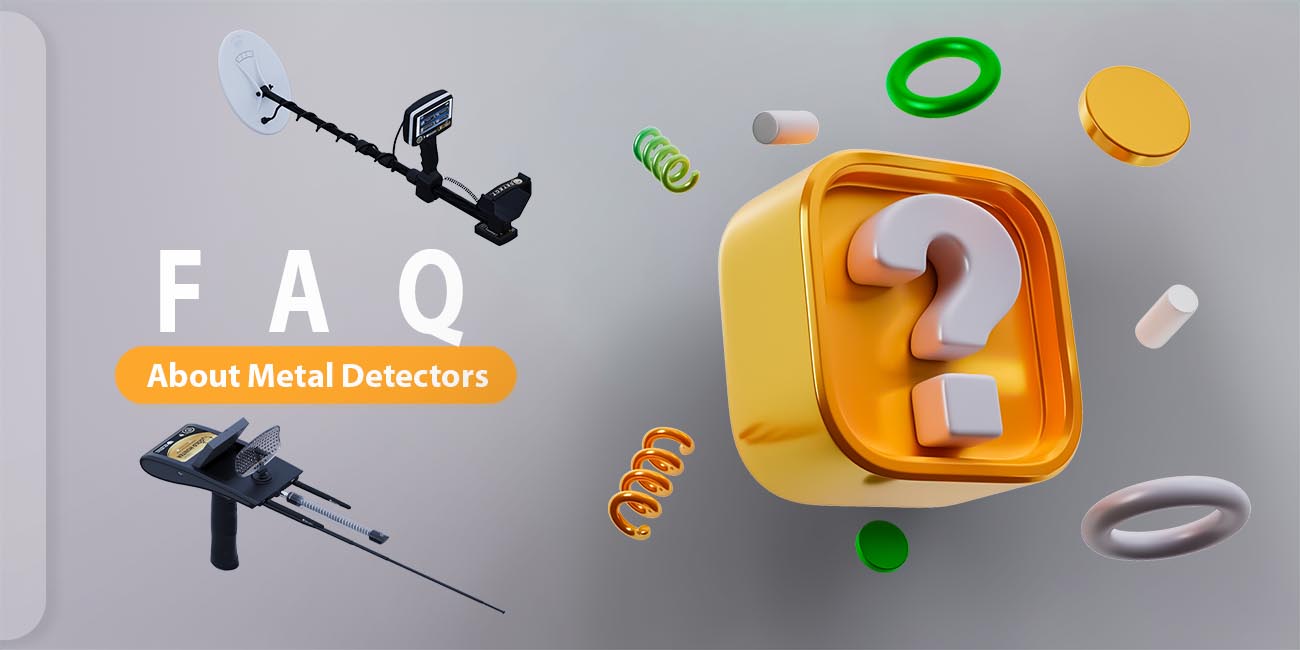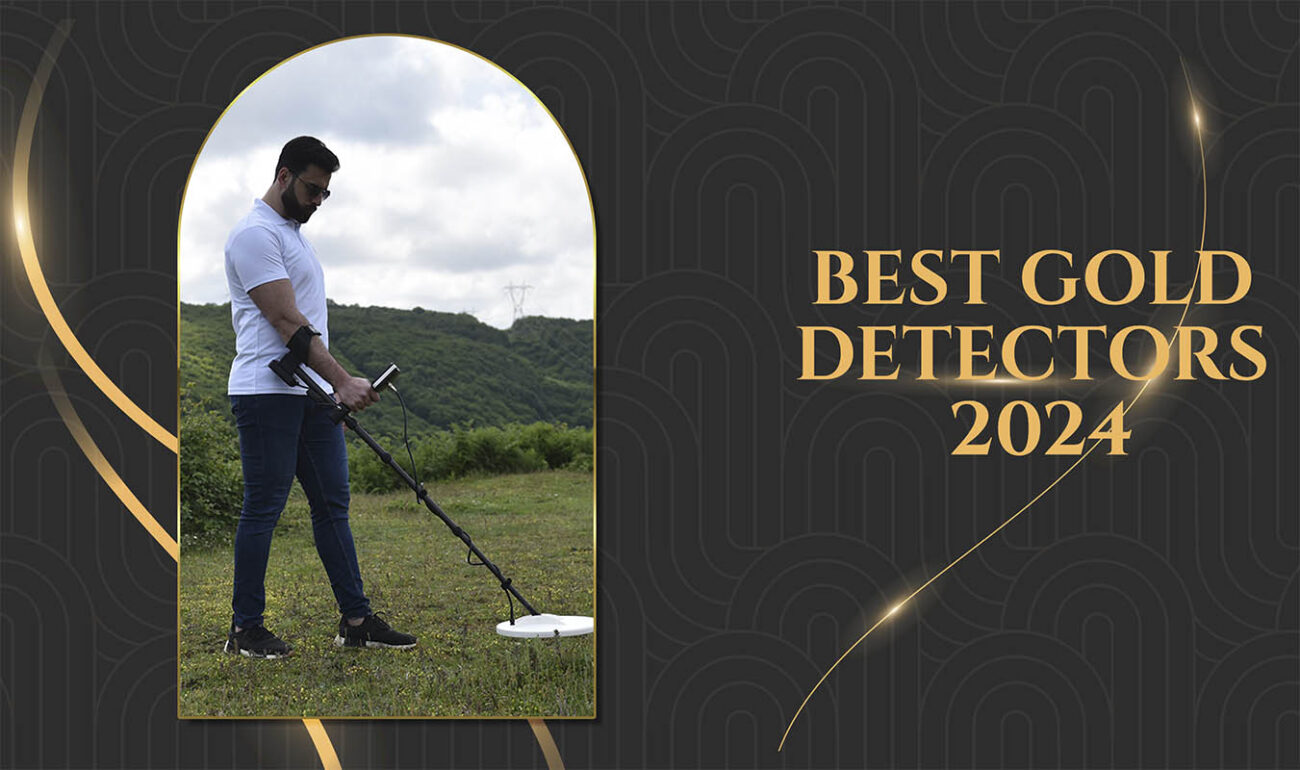Blogs
Frequently asked questions about metal detectors (Part 2)
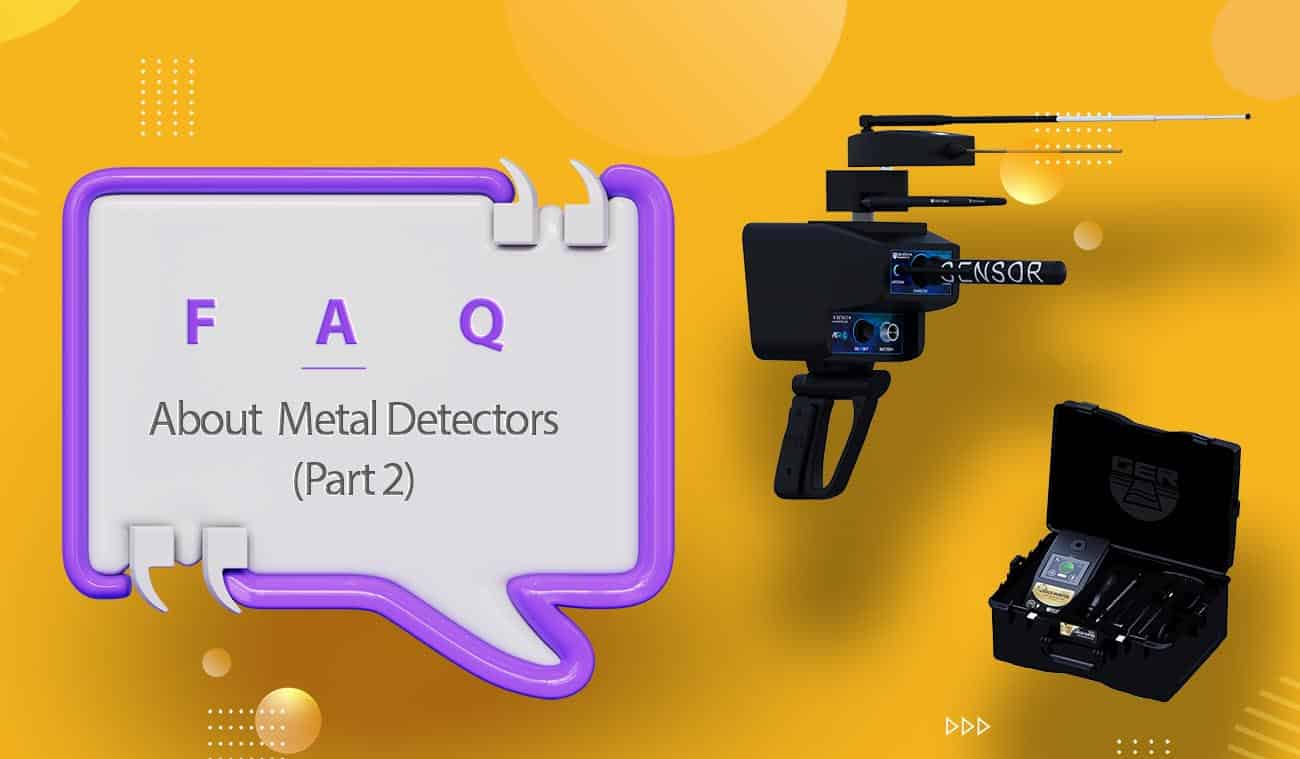
In this article we will talk about (FAQ) Frequently asked questions about metal detectors (Part 2) which is part of questions asked by our community
Frequently asked questions about metal detectors (Part 2)
What metal detectors has the best depth?
Try
Titan Ger 1000
Deep Seeker
Titan 400 Smart
Titan 500 Smart
-These has one of the deepest catching range for metal
What's a good metal detector for beginners?
Try the Golden Way it is super easy to use and perfect for beginners
What are the types of metal detectors?
Metal detectors come in various forms, each suited for specific purposes and user experience levels. Whether you’re a seasoned treasure hunter or a curious beginner, understanding these categories will help you select the perfect device for your needs.
Can I have more details about types of Metal detectors ?
. Electromagnetic Metal Detectors (VLF and Pulse Induction)
- Most common and user-friendly type, ideal for beginners and hobbyists.
- Utilizes a search coil transmitting an electromagnetic field.
- Detects disruptions in the field caused by buried metals, triggering audio or visual alerts.
- VLF (Very Low Frequency): Affordable, effective for general treasure hunting and coin detecting.
- Pulse Induction (PI): Works well in mineralized ground where VLFs struggle. Often preferred by experienced users for relic hunting.
- Imaging Metal Detectors
- Employed by professional archaeologists for deep treasure detection (up to 20-25 meters).
- Acts as a magnetic sensor sending signals into the ground.
- Scans the search area in a grid pattern, recording data at each point.
- Generates a 3D image revealing the composition of the scanned area, including buried metal objects, voids, and natural features.
- Long-Range Metal Detectors (Sensor Metal Detectors)
- Designed for sweeping large areas and pinpointing deep burials (up to 50 meters).
- Employs search antennas to pick up signals from magnetic fields surrounding buried metal.
- Offers a vast scanning range (up to 2000 meters in some models).
- By taking readings from multiple directions, the target’s location can be narrowed down with greater accuracy.
- Multi-System Metal Detectors
- Combines multiple search technologies within a single device.
- Provides versatility and the ability to use different detection methods.
- Increases the chance of obtaining accurate results in various ground conditions.
- Cost-effective alternative to purchasing separate detectors for each technology.
What are the uses of metal detectors?
Metal detectors uncover hidden treasures! Find natural gold nuggets, ancient coins, lost jewelry, and even archaeological relics. They also ensure security, aid construction, and assist in investigations. Your adventure awaits! Click here to view your next metal detector
What features should you consider when choosing a metal detector?
Key Features for Choosing the Perfect Metal Detector:
- Depth & Sensitivity: Higher frequency and sensitivity reach buried treasures deeper underground.
- Discrimination: Target specific metals (gold, jewelry, relics) to avoid unwanted items.
- Lightweight & Ergonomic: A comfortable, lightweight detector ensures extended use without fatigue. Consider water and dust resistance for various terrains.
- Long-Lasting Battery: Enjoy uninterrupted exploration with long battery life or rechargeable options.
What are the pros and cons of using a metal detector?
Pros about Metal Detectors:
- Find Hidden Riches: Discover valuable treasures, lost coins, and historical artifacts.
- Fun Hobby: Enjoy the thrill of the hunt and unearth exciting finds.
- Uncover History: Learn about the past through historical relics in your local area.
Cons about Metal Detectors:
- Investment Required: Metal detectors can range in price, so factor in the cost.
- Pinpointing Precision: Finding specific targets can be challenging, requiring patience.
- Know Your Limits: Regulations may restrict metal detecting in certain areas, so check beforehand.
What are the laws and regulations regarding metal detectors?
Metal detector regulations differ by location. Permits or licenses might be required, and some areas restrict usage zones. Always check local laws before you dig!
Where to metal detector?
Metal detecting offers a thrilling treasure hunt, but always explore responsibly and check local regulations. Here are some prime locations to explore:
- Parks & Recreation Areas: Beaches, historical parks, and battlefields can hold hidden riches.
- Fields: Open fields with landowner permission might yield lost coins or jewelry.
- Ghost Towns & Abandoned Sites: Explore cautiously; these can be treasure troves but also safety hazards.
- Your Backyard: Uncover surprises in your own yard, but avoid damaging underground utilities.
Where to buy metal detectors?
- You can purchase one of our devices through our website via the following link: Click here.
- Visit our company headquarters and make a direct purchase.
- Visit one of our worldwide distributors closest to you and purchase from them.
Which metal detector should I buy?
Choosing the right type of metal detector depends on several factors, such as your goals, available budget, and where you plan to use it. Here are some types of metal detectors and their best uses:
General Metal Detectors:
For beginners or those searching for coins, jewelry, or general items:
– Recommended device: Golden Way
– Features: Easy to use, affordable, ideal for beginners and general searches.
Gold-Specific Metal Detectors:
If your goal is to search for gold, choose a device specifically designed for this purpose, such as:
– Recommended devices: Uig Gold Digger, Gold Seeker
– Features: High sensitivity to gold, good detection depth, capable of minimizing mineral soil interference.
Multi-Use Metal Detectors:
For versatile use in various environments (beaches, mountains, agricultural, or desert areas), consider a device like the Uig Gold Digger.
– Features: Multiple detection modes, adjustable frequencies, excellent performance in salty water and mineral-rich soils, waterproof.
Professional Metal Detectors:
For advanced prospecting or high-performance needs, consider:
– Recommended devices:
Titan Ger 1000
Deep Seeker
Titan 400 Smart
Titan 500 Smart
– Features: Multiple systems in one device, advanced adjustment options, wide range of precious metals detection, high performance in various environments, ability to reach significant depths and capture targets from long distances.
Treasure, Cavity, and Void Detectors:
For enthusiasts of hidden treasures and ancient relics in caves or historical graves:
-Recommended devices:
Uig Ground Scanner
Uig Watch
Easy Way Smart
– Features: Direct scanning of ground layers, accurate results using 3D imaging technology, detection of voids, caves, and graves underground, and ability to reach great depths.
Which metal detectors goes the deepest?
We recommend the following options
Which metal detectors is best for gold?
The following are the best options
Will metal detectors find gold?
Yes, metal detectors can find gold! In fact, they are a popular tool for prospectors and treasure hunters seeking gold nuggets, coins, and jewelry.
Will metal detectors find copper?
Absolutely, metal detectors can find copper! In fact, copper is one of the metals they are very effective at detecting due to its properties:
- High Conductivity
- Commonly Found
Will metal detectors find brass?
Yes, metal detectors can find brass! Brass is an alloy composed primarily of copper and zinc, and because of this composition, it shares properties that make it detectable with a metal detector
Will metal detectors find silver?
Certainly, metal detectors can detect silver. Silver is a highly desirable target for treasure hunters due to several key factors:
Excellent Conductivity: Similar to copper and brass, silver is highly conductive, which allows it to interact well with the electromagnetic field of a detector, generating a strong signal.
Historical Significance: Silver has been used for centuries to make coins, jewelry, and other valuable items, increasing the likelihood of finding lost or abandoned silver objects with a metal detector.
Potential silver finds may include:
– Silver coins from various ancient eras
– Silver jewelry such as bracelets, rings, and necklaces
– Historical silver tableware or utensils
Will metal detectors find leads?
Yes, metal detectors can indeed detect lead, though often with lower efficiency compared to highly conductive metals like iron, copper, or gold. Lead is a non-magnetic metal with relatively low electrical conductivity, which may require a detector with high sensitivity to locate it effectively.
Some metal detectors may struggle to find lead if it’s buried deeply or mixed with other materials. Therefore, success in finding lead largely depends on the quality of the detector, the soil type, and environmental conditions.
Detectors suited for detecting lead include:
Gold Hunter Smart – Uig Gold Digger
Will metal detectors find phones?
Metal detectors can potentially find phones, but it depends on the phone and the detector.
Do cheap metal detectors work?
While affordability doesn’t guarantee top-tier quality, numerous excellent metal detectors are available at budget-friendly prices.
Will a metal detector find gold under water?
Yes, a metal detector can detect gold underwater, but not all detectors are suited for this task. You need a specialized underwater metal detector equipped with waterproof coils, allowing it to operate efficiently in wet or submerged environments.
It’s recommended to use detectors specifically designed for gold, as they are more sensitive to precious metals and can differentiate between various types of metals. In water environments like beaches or rivers, detectors resistant to saltwater are ideal, as salt can affect accuracy.
An example of an underwater gold detector is the Uig Gold Digger.
How to contact UIG detectors?
Click here to reach our contact us page
This is a part of the FAQ community keep asking us about... if you dont find the question you desire click here to view part 1
or click here to write use your question and we will reply to you the soonest we can...
UIG detectors is here to assist you finding your next Gold treasure and choosing the fit gold detector for you.
Register today to receive a free consultation, and our specialist will help you find your next gold detector.
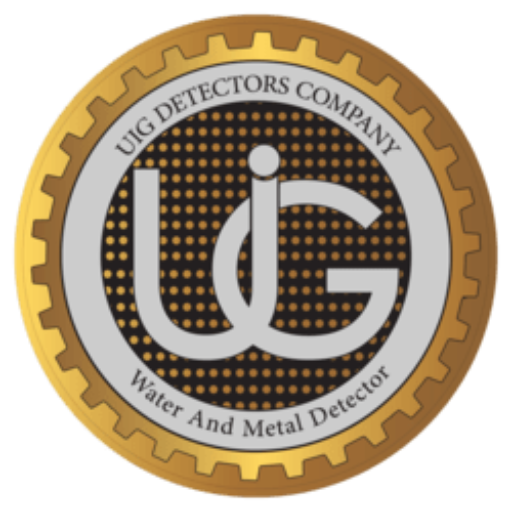
Review our Article:


